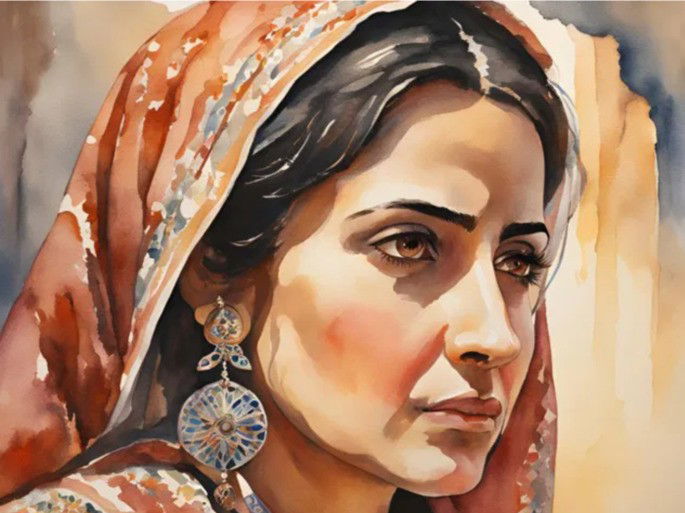Judith was the wife of Esau and the daughter of Beeri. She was a Hittite, meaning she did not belong to God's chosen people, the Israelites. Judith became known for marrying Esau, who was the eldest son of Isaac and brother of Jacob.
Esau's union with Judith brought great distress to his parents, Isaac and Rebekah. The book of Genesis describes Rebekah’s bitterness and suffering, as she feared for the continuation of the family’s faith and tradition. Esau defied his family’s expectations by marrying women who were not Israelites. This choice was frowned upon by the Israelites, since the Hittites did not follow the faith or customs of God's people.

Judith, Wife of Esau
Although details about Judith’s life are scarce in the Bible, her story offers important lessons about the consequences of choices that stray from God’s purposes. Esau’s decision to marry Judith is seen as a departure from family teachings and from God’s plan for Abraham’s lineage.
There are no records in the Bible regarding Judith’s death or her role after the story of Esau and his descendants. However, her relationship reminds us of the challenges that personal choices can bring to families and to faith, especially when those decisions involve our commitment to God.
Key Events in the Life of Judith
In the Bible, Judith, Esau’s wife, appears briefly, and there are few details about her life:
- Origin: Judith was the daughter of Beeri, a Hittite, and thus not part of the Israelite people, God’s chosen nation.
- Marriage to Esau: Judith married Esau, the eldest son of Isaac and Rebekah, and brother of Jacob. Esau took Judith as his wife when he was 40 years old.
- Grief of Esau’s Parents: Esau’s marriage to Judith, who was not an Israelite, brought great sorrow to his parents, Isaac and Rebekah. They were deeply grieved, as they had hoped Esau would marry someone from their own people.
What We Can Learn from Judith’s Story
The life of Judith, Esau’s wife, brings important lessons about the consequences of our decisions. Judith belonged to a people who did not follow the customs or faith of the Israelites. By marrying Esau, she became part of a choice that caused great bitterness to his parents. This union symbolizes how decisions outside of God’s purposes can negatively impact both personal and family life.
A clear lesson from Judith’s story is the importance of considering the spiritual consequences of our choices. Esau, by marrying women from other nations, showed a detachment from God’s guidance and the family tradition. This brought conflict and difficulty into his family, and Judith was central to that scenario.
Judith’s story warns us about the importance of wise decisions in marriage and in life, as they can have deep impacts on our family relationships. Her brief mention in the Bible serves as an example of the need for wisdom and discernment when making significant life choices.
Esau’s Wives
According to the Bible, Esau had three wives:
- Judith, daughter of Beeri, a Hittite.
- Basemath, daughter of Elon, also a Hittite.
- Mahalath, daughter of Ishmael (Isaac’s brother).
These unions displeased Esau’s parents, who expected their sons to marry women from their own people.
Esau’s Hittite wives brought great sorrow to Isaac and Rebekah. His choice to marry women from another culture reflected his departure from God. These unions had harmful consequences, causing family divisions and an unpleasant atmosphere. Furthermore, his wives hindered the continuation of Israelite faith and traditions, compromising family harmony.
The story of Esau and his wives serves as a warning about the importance of making choices that honor our faith and God’s values. These decisions affect not only our personal lives but also our family harmony.
Judith and Esau: A Marriage of Unequal Yoke
Judith, Esau’s wife, was a foreigner and not part of God’s people. In addition to Judith, Esau also married another Hittite woman, Basemath, against his family’s wishes.
Esau’s decision to marry women from another culture greatly saddened his parents, as mentioned in Genesis 26:34–35. Isaac and Rebekah feared that such marriages would lead the family away from God and His commandments. In the Bible, “unequal yoke” refers to a union between people with different beliefs and values. This can cause spiritual and emotional conflict, as the foundation of faith is not shared.
The consequences of this unequal yoke were bitterness and family suffering. Esau’s marriages to women of different faiths led to disagreements, showing how choices that don’t align with God’s principles can negatively affect family relationships.
To avoid unequal yokes, it is essential to prioritize relationships that share similar values and beliefs especially in faith. This involves seeking partnerships that encourage mutual spiritual growth and honor God’s principles.
If someone is already in an unequal yoke, the first step is to reflect on the spiritual impact of that relationship. Open conversation with the partner about differences is crucial. Seeking pastoral counseling and striving for mutual understanding through respect and dialogue is also important.
The Book of Judith in the Bible
In the Catholic Bible, there is a Book of Judith but it does not refer to Esau’s wife. In fact, these are two completely different figures. The Judith mentioned in this apocryphal book is a fictional character, while Judith, Esau’s wife, is cited in Genesis (chapter 26:34).
See Also:
